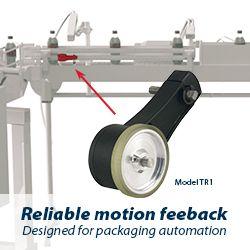Artificial Intelligence at the Inflection Point: Experts Weigh “A Revolution in the Making”
Business, Government and Academic Leaders Meet at Earley Information Science To Discuss Where AI Is, and Where It Is Going
More than 120 leaders from business, government and academia met to discuss the impact and promise of artificial intelligence at an evening "knowledge salon" held recently at the headquarters of Earley Information Science (EIS) in Carlisle, MA. The gathering was hosted by Seth Earley, founder and CEO of EIS, and Susan Feldman, founder and executive director of the Cognitive Computing Consortium.
What does this mean for companies, and for government agencies and schools? What will the impact be on technology firms? And how will the workforce be affected? Are fears justified that AIs machine intelligence and smart applications will take away jobs? Or, as was the case with the machines of the Industrial Revolution, will AI replace old tasks with new opportunities?
"AI is at an inflection point," Earley said, noting the theme of the salon. "Or to put it another way, it is a revolution in the making."
Representing a diverse range of industries and public-sector entities in the greater Boston area, the salon participants broke into about a dozen groups, discussing such topics as AIs implications for the workforce, the investment landscape, the public-sector impact, industry applications and a primer on cognitive computing, the cutting-edge technology that is now powering AIs advances.
Tom Davenport, Professor of Information Technology and Management at Babson College and co-author of "Only Humans Need Apply: Winners and Losers in the Age of Smart Machines," helped facilitate the discussion on near- and long-term implications for the workforce. The conversation revolved around ways in which robots can augment what humans are capable of, just as the machines of the 19th and 20th centuries expanded our physical capabilities. Davenport noted, "I liked the fact that the session participants were all passionate about finding a way for smart humans and smart machines to collaborate in the workplace."
Others who shared their perspectives included:
o Katie Stebbins, Assistant Secretary for Technology, Innovation and Entrepreneurship for Massachusetts Governor Charlie Baker. "I was amazed at the range of expertise gathered at this venue and the ability to make the discussions accessible to a non-technology person. AI is going to impact all of us and it is important for the public sector to embrace and apply these new tools for serving the public interest and providing new education, growth and economic opportunities."
o Leslie Owens, former research director at Forrester Research Inc. and now executive director of the MIT Sloan School of Managements Center for Information Systems Research. "Its always nice to find a relaxed venue with smart, like-minded people to share ideas with. AI is going to increasingly touch all aspects of our lives and there are extremely important ramifications that business and technology people need to understand."
o Henry Truong, the chief technology officer of TeleTech, a call center and customer experience organization serving major technology players such as Google, Facebook, and Microsoft, as well as a whos who of the financial services industry and companies organizations like FedEx and Ford. A $1.4 billion publicly traded company, TeleTech is already quite advanced in its use of AI in call centers encompassing 110,000 workers. But, said Truong, "Even though we leverage AI in many parts of our business, we know we have a great deal of work ahead of us. No one has the answer yet in fully leveraging AI—even the big technology firms and consultancies. The AI salon was a great place to discuss what people are doing and to see where pockets of innovation are occurring."
One outgrowth of the salon is the formation of an AI Working Group, now in the process of establishing a broad agenda to explore AIs future.
One of the groups goals is to create a framework for evaluating potential AI projects.
Another goal is to produce a policy paper, in conjunction with Governor Bakers office, that would serve as a blueprint for the public and private sectors in Massachusetts to capitalize on AIs ability to retrain workers and spur job growth.
Featured Product

Model TR1 Tru-Trac
The Model TR1 Tru-Trac® linear measurement solution is a versatile option for tracking velocity, position, or distance over a wide variety of surfaces. An integrated encoder, measuring wheel, and spring-loaded torsion arm in one, compact unit, the Model TR1 is easy to install. The spring-loaded torsion arm offers adjustable torsion load, allowing the Model TR1 to be mounted in almost any orientation - even upside-down. The threaded shaft on the pivot axis is field reversible, providing mounting access from either side. With operating speeds up to 3000 feet per minute, a wide variety of configuration options - including multiple wheel material options - and a housing made from a durable, conductive composite material that minimizes static buildup, the Model TR1 Tru-Trac® is the ideal solution for countless applications.
